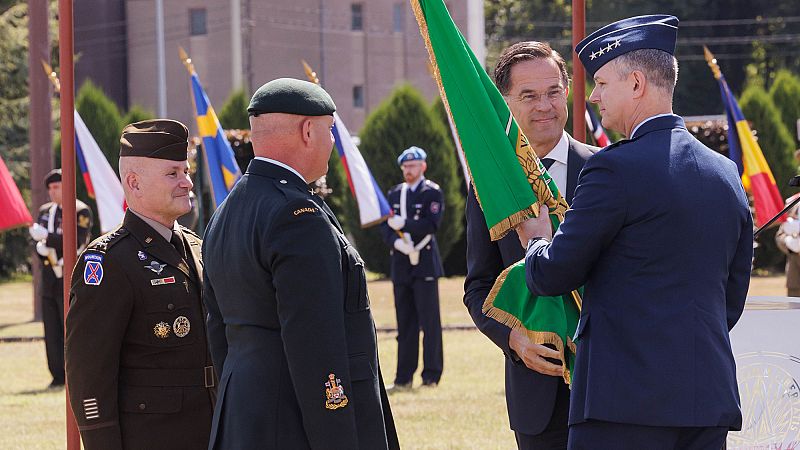NATO Faces Complex Threats, But Unity Remains Unshakable
The challenges confronting NATO are growing increasingly complex and interconnected. However, according to General Alexus Grynkewich, the newly appointed head of NATO’s military operations, these threats are no match for the alliance’s unity, resolve, and shared purpose.
Grynkewich, a US Air Force general, took over as Supreme Allied Commander Europe (SACEUR) during a change of command ceremony in Mons, Belgium. He emphasized that the times are consequential, with the alliance facing evolving and multifaceted security challenges. Despite this, he expressed confidence in NATO’s ability to address these issues through collective effort and strong partnerships.
“Though the challenges we face are becoming more intertwined, they are no match for the unity, resolve, and shared purpose within NATO,” Grynkewich stated. His appointment by US President Donald Trump, confirmed by the US Senate, and approved by NATO’s North Atlantic Council, underscores the strategic importance of the role.
Grynkewich aims to continue the momentum set by his predecessor, General Christopher Cavoli, in transforming NATO’s command operations. He highlighted the readiness of NATO allies to defend their nations and the potential for continued improvement in the alliance’s capabilities.
The Role of SACEUR
As the head of NATO’s military operations, the SACEUR is responsible for planning and executing all NATO missions. This includes identifying the forces required for operations and making recommendations to NATO’s political and military authorities. In the event of aggression against a member state, the SACEUR is tasked with executing all available military measures to preserve or restore the security of alliance territory.
The position of SACEUR has no fixed term, with previous holders serving between one and eight years. The role has always been held by a US military general, reflecting the historical significance of the United States in NATO’s structure.
A New Defence Spending Target
NATO allies recently agreed to significantly increase their defence spending target from 2% of GDP to 5%. This new target is divided into two parts: 3.5% for core defence spending, such as hardware, and 1.5% for defence-related investments, including dual-purpose infrastructure and cyber security.
This decision marked a major victory for former US President Donald Trump, who had long criticized European allies for not meeting their financial commitments. The increased spending reflects a broader commitment to strengthening NATO’s capabilities and ensuring readiness in the face of emerging threats.
Geopolitical Challenges and Strategic Concerns
In their joint declaration, NATO leaders identified Russia as a “long-term threat” to Euro-Atlantic security. The country, which launched a full-scale invasion of Ukraine in early 2022, is seen as a potential aggressor capable of attacking a European ally before the end of the decade.
Washington has also raised concerns about its long-term support for NATO allies. Reports suggest that the US may announce a reduction in troop and equipment deployments towards the end of summer. This has led to speculation about the future of US involvement in the alliance, although Grynkewich’s appointment signals continued commitment.
Despite these uncertainties, Grynkewich emphasized the importance of collective defense and the need for the alliance to rise to the challenges ahead. He described his successor as “the officer we need here, now,” highlighting the critical role of leadership in shaping NATO’s future.
Historical Context
General Grynkewich is the 21st SACEUR, a position established in 1951 and first held by General Dwight D. Eisenhower, who later became the 34th US president. The legacy of the role continues to shape NATO’s strategic direction, with each SACEUR contributing to the alliance’s evolving mission and objectives.
As NATO navigates an increasingly complex security environment, the leadership of figures like Grynkewich will be crucial in maintaining the alliance’s strength and cohesion. With a focus on unity, preparedness, and adaptability, NATO remains committed to safeguarding the interests of its members in an uncertain world.






